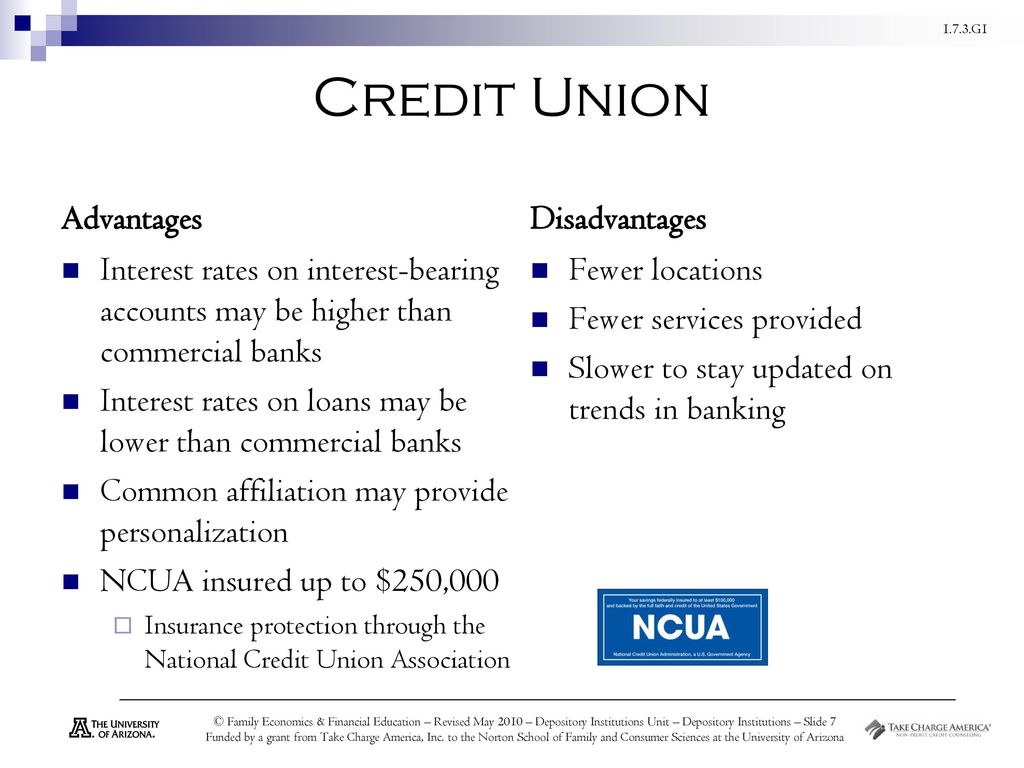Discover the Best Wyoming Credit Unions: Your Guide to Resident Financial Solutions
Discover the Best Wyoming Credit Unions: Your Guide to Resident Financial Solutions
Blog Article
Unlocking the Benefits of Credit Score Unions: Your Guide
In the world of economic organizations, credit score unions stand as a unique and typically underexplored choice for those seeking an extra tailored technique to banking. As we look into the details of cooperative credit union, a globe of chances and advantages unravels, supplying a peek into a monetary landscape where community worths and member-focused services take center stage. From their modest beginnings to their modern effect, understanding the essence of lending institution could potentially improve the method you see and handle your finances.

History of Credit Score Unions
Lending institution have a rich history rooted in the cooperative movement, dating back to the 19th century. The idea of lending institution emerged as a reaction to the financial needs of people that were underserved by standard financial institutions. Friedrich Wilhelm Raiffeisen, a German mayor, is commonly attributed with establishing the first modern credit rating union in the mid-1800s (Wyoming Credit). Raiffeisen established participating borrowing cultures to aid farmers and rural neighborhoods access budget friendly credit scores and leave the clutches of usurious lenders.
The idea of individuals coming together to merge their resources and give monetary assistance to every other spread quickly throughout Europe and later to The United States and Canada. In 1909, the first lending institution in the USA was developed in New Hampshire, marking the start of a brand-new era in community-focused banking. Ever since, cooperative credit union have actually remained to prioritize the monetary wellness of their participants over revenue, embodying the cooperative concepts of self-help, self-responsibility, democracy, equity, equality, and solidarity.
Subscription Qualification Criteria
Having developed a structure rooted in participating principles and community-focused banking, cooperative credit union preserve certain subscription qualification standards to ensure positioning with their core values and goals. These standards often revolve around a common bond shared by prospective members, which might include aspects such as geographical area, company, business association, or subscription in a details area or organization. By requiring members to meet particular qualification needs, cooperative credit union intend to cultivate a feeling of belonging and shared function among their members, reinforcing the cooperative nature of these banks.
Along with common bonds, some lending institution may additionally expand subscription eligibility to household participants of existing members or individuals that stay in the exact same home. This inclusivity aids cooperative credit union broaden their reach while still staying true to their community-oriented values. By keeping clear and clear membership requirements, cooperative credit union can ensure that their members are proactively engaged in supporting the participating values and objectives of the organization.
Financial Products and Services
When thinking about the array of offerings readily available, credit report unions supply a diverse array of monetary products and services customized to fulfill the one-of-a-kind needs of their members. Participants often benefit from customized consumer service, as debt unions focus on constructing solid partnerships with those they offer.
Furthermore, lending institution often supply economic education and learning and therapy to assist participants boost their financial literacy and make educated choices. Several cooperative credit union also get involved in shared branching networks, enabling members to access their accounts at a range of places across the country. On the whole, the variety of monetary services and products supplied by lending institution highlights their dedication to fulfilling the diverse needs of their members while prioritizing their financial wellness.
Advantages Over Conventional Financial Institutions
Showing a distinct approach to economic services, cooperative credit union offer several advantages over conventional banks. One essential benefit is that lending institution are generally member-owned, indicating that revenues are reinvested into the organization to supply better prices and reduced charges for participants. This cooperative structure typically causes a lot more personalized customer service, as credit history unions prioritize member satisfaction over making the most of profits. Additionally, credit history unions are understood for their competitive interest prices on financial savings accounts, loans, and credit scores cards. This can result in greater returns for members who borrow or conserve money through the cooperative credit union compared to standard banks.
Additionally, cooperative credit union often tend to have a strong emphasis on economic education and area support. They commonly provide workshops and sources to help members boost their monetary proficiency and make sound money administration decisions (Wyoming Credit). By cultivating a sense of neighborhood and shared objectives, credit score unions can create a much more comprehensive and encouraging banking atmosphere for their participants
Community Involvement and Social Effect

In addition, credit report unions often partner with regional companies and charities to support different social reasons such as inexpensive housing, education and learning, and medical care. By teaming up with these entities, lending institution can magnify their social impact and address important concerns influencing their areas. This collaborative approach not only benefits those in need however likewise reinforces the social fabric of the community by fostering a sense of unity and support among its members. In essence, cooperative credit union offer as stimulants for positive change, driving community advancement and social progression with their energetic involvement and impactful campaigns.
Verdict
To conclude, cooperative credit union have a rich history rooted in neighborhood and teamwork, providing a diverse array of monetary product or services with competitive prices and customized customer support. They prioritize the economic wellness of their members over earnings, fostering Wyoming Credit Unions a feeling of belonging and supplying financial education. By proactively engaging in social impact campaigns, credit unions develop a inclusive and encouraging financial setting that makes a positive difference in both specific lives and communities.
Friedrich Wilhelm Raiffeisen, a German mayor, is often attributed with founding the first modern credit rating union in the mid-1800s - Credit Union Cheyenne. By requiring members to fulfill certain eligibility needs, credit rating unions aim to promote a feeling of belonging and shared objective among their members, strengthening the participating nature of these financial organizations
In addition, credit history unions regularly supply financial education and counseling to help members improve their monetary proficiency and make educated decisions. Overall, the variety of monetary items and solutions supplied by credit report unions emphasizes their commitment to satisfying the diverse requirements of their members while prioritizing their monetary health.
In addition, credit rating unions are known for their competitive rate of interest rates on cost savings accounts, car loans, and credit score cards.
Report this page